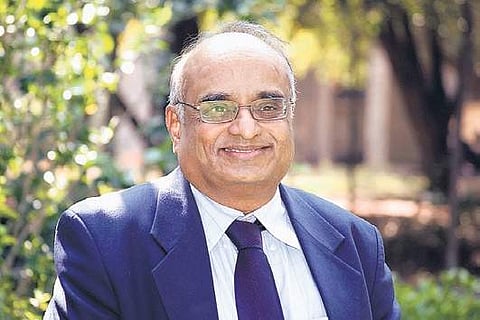

BENGALURU: The idea for the book was conceived around 2000-2002. When I studied about clusters that specialised in specific economic activities, I stumbled upon an interesting find — these were run by specific caste groups, and the clusters contributed to employment and exports across the country,” says professor-cum-author R Vaidyanathan as he talks about his recently launched book, Caste as Social Capital. He has authored India Uninc. and Black Money and Tax Havens.
His recent book Caste as Social Capital examines the workings of caste through the prism of business, economics, and entrepreneurship. ‘The word caste in the Indian context immediately evokes derision and sometimes, anger. Caste is almost always identified with oppression and discrimination. Anyone talking about caste, even in a mildly positive way is considered as antediluvian and anti-modern and treated like a museum piece,’ writes the retired professor of Finance at IIM-Bangalore. He looks beyond the usual parameters and rigid hierarchy and revisits the route to find new possibilities.
“Caste has, for ages, been studied from religious, political and social angles. I wanted to focus on the role it plays in the economic sphere,” shares the two-time Fulbright scholar and Fellow of ICSSR-visiting faculty at various universities in USA/UK. He paints a vivid picture of the not-so-outdated institution of caste in a new light. He also states that the social capital aspect of it hasn’t received adequate attention. In the 100-odd page book, he takes the reader on a journey through traditional business communities like the Patels, Bohras, Kutchis; successful economic clusters formed by Nadars in Sivakasi, Gounders in Tirupur, Jadejas/Patels in Jamnagar, Gujrat and various other unincorporated sectors, and observes how caste plays an important role in business relationships. Unlike the twisted image that is usually given to caste, he gives it a positive spin, one which perhaps will act as an engine for economic growth. ‘It facilitates group identity and helps in group activities… Caste as a social capital plays an important role in the development of economic clusters,” he writes.
With care, Vaidyanathan serves the grey area of caste — one that has often been avoided — in a plate filled with historical data, anecdotes, surveys, and census that dates back to the 18th century.
The book is available on amazon.in